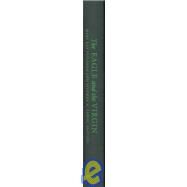Eagle And the Virgin
, by Vaughan, Mary Kay; Lewis, Stephen E.; Lopez, Rick A. (CON); Rochfort, Desmond (CON)- ISBN: 9780822336570 | 082233657X
- Cover: Hardcover
- Copyright: 3/30/2006
When the fighting of the Mexican Revolution died down in 1920, the national government faced the daunting task of building a cohesive nation. It had to establish control over a disparate and needy population and prepare the country for global economic competition. As part of this effort, the government enlisted the energy of artists and intellectuals in cultivating a distinctly Mexican identity. It devised a project for the incorporation of indigenous peoples and oversaw a vast, innovative program in the arts. The Eagle and the Virgin examines the massive nation-building project Mexico undertook between 1920 and 1940.Contributors explore the nation-building efforts of the government, artists, entrepreneurs, and social movements; their contradictory, often conflictive intersection; and their inevitably trans-national nature. Scholars of political and social history, communications, and art history describe the creation of national symbols, myths, histories, and heroes to inspire patriotism and transform workers and peasants into efficient, productive, gendered subjects. They analyze the aesthetics of nation-building made visible in murals, music, and architecture; investigate state projects to promote health, anti-clericalism, and education; and consider the role of mass communications from cinema and radio to road-building. They discuss how national identity was forged among social groups, specifically political Catholics, industrial workers, middle class women, and indigenous communities. Most importantly, the volume weighs in on debates about the tension between the eagle (the modernizing secular state) and the Virgin of Guadalupe (the Catholic defense of faith and morality). It argues that despite bitter, violent conflict, the symbolic repertoire created to promote national identity and memory-making eventually proved capacious enough to allow the eagle and the virgin to coexist peacefully.Contributors: Adrian Bantjes, Katherine Bliss, María Teresa Fernández, Joy Elizabeth Hayes, Joanne Hershfield, Stephen E. Lewis, Claudio Lomnitz, Rick A. López, Sarah M. Lowe, Jean Meyer, James Oles, Patrice Olsen, Michael Snodgrass, Mary Kay Vaughan, Marco Velázquez, Wendy Waters, Adriana ZavalaMary Kay Vaughan is Professor of History at the University of Maryland, College Park. Her books include Cultural Politics in Revolution: Teachers, Peasants, and Schools in Mexico, 1930-1940. She is a co-editor of the journal Hispanic American Historical Review. Stephen E. Lewis is Associate Professor of History at California State University, Chico. He is the author of The Ambivalent Revolution: Forging State and Nation in Chiapas, 1910-1945.







